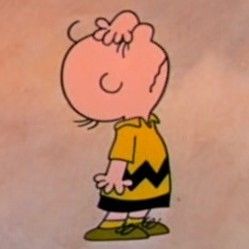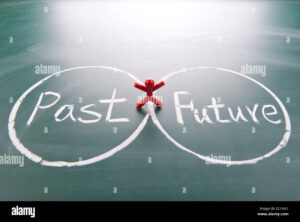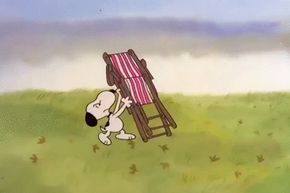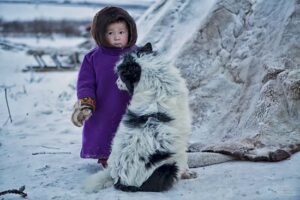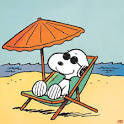After my recent accident I spent a restless night in the hospital. Almost being run over by my own car had left me shaken and nearly a whole day had been wiped from my memory. I found it impossible to sleep and I lay awake most of the night reflecting on what had happened.
Strangely, it turned into a kind of Charlie Brown moment.
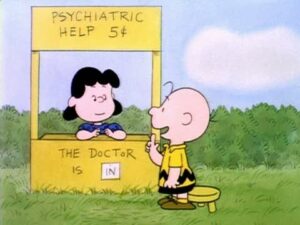
You might remember this classic encounter between Lucy and Charlie:
Lucy is sitting at her five-cent psychiatry booth, and Charlie Brown has stopped by for a little advice.
She says to him; “ Charlie Brown, life is like a deck chair.”
Charlie looks and asks, “Like what?” Lucy says, “A deck chair.”
“Have you ever been on a cruise ship? Passengers open up these canvas deck chairs so they can sit in the sun. Some people face their chairs forward so they can see where they’re going, some people face their chairs toward the rear so they can see where they’ve been. Charlie, let me ask you this: on the cruise ship of life, which way is your chair facing?”
Charlie answers, “I’ve never been able to get my deck chair open.”
When I left the hospital I felt like a guy who couldn’t even find his deck chair.
When I was young I always had a fix on which direction my deck chair faced: toward the future. Now that I’m older, I’m more prone to forget about it and often find it facing the past.
I admit I’ve become a bit of a day dreamer of times gone by.
So when I got home I resolved to have a conversation with myself about my deck chair and which way I had it facing.
“Paddy, old boy, you damn near fell off the ship of life. If you want to keep seeing tomorrow you better stop staring at yesterday.”
As is often the case when I have a problem, I stumble into a solution.
In this case I came upon a YouTube video about a family of reindeer herders in the Russian arctic. They were nomads who managed a herd of 2,500 reindeer and lived in tents in virtual isolation, with few modern conveniences.
These nomads on their ship of life were constantly in search of better grazing land for their herd and therefore forever on the move. In summer they’d graze on pastures on the European side of the Urals, in the winter on the Asian side.
These were people who kept a close fix on their deck chairs.
These migrations were bone-crushingly difficult, but made doable by each member knowing their role.
- Everyone had a deck chair,
- Everyone knew how to open their chair,
- Everyone knew in which direction to face it.
Even the little ones.
They appeared to have no qualifiers on life — no good, better or best — just life. They appeared to have no interest in seeking out an easier or softer way to live. Their only interest was having the means to live the life of which they were immensely proud.
When they spoke of work it was with reverential ardor and a real sense of meaning and purpose.
The 2,500 reindeer they managed were their sacred charge.
So as the film crew continued to follow this family sailing on their ship of life across the Urals to summer pastures in Europe and then back again to winter in Asia it was as if you were witnessing a pilgrimage to the holy land.
The reindeer were emblematic to me of the deck chairs we all choose in life. The nomad family was lovingly moving them from east to west and back again with an exquisite sense of purpose.
So when I climbed off my treadmill at the end of the documentary my mind was spinning with the questions:
On the ship life,
- what is my sacred charge?
- how am I managing my herd?
- where are they headed?
Clearly, Pat, your concern ought not be how your deck chair compares with others or what others might think about your chair.
No, Pat, you ought only be concerned that you have a deck chair and that it’s facing in the right direction.
A well-placed deck chair can be a source of great happiness.
Isn’t that right, Snoopy?
Just a thought…
Pat

